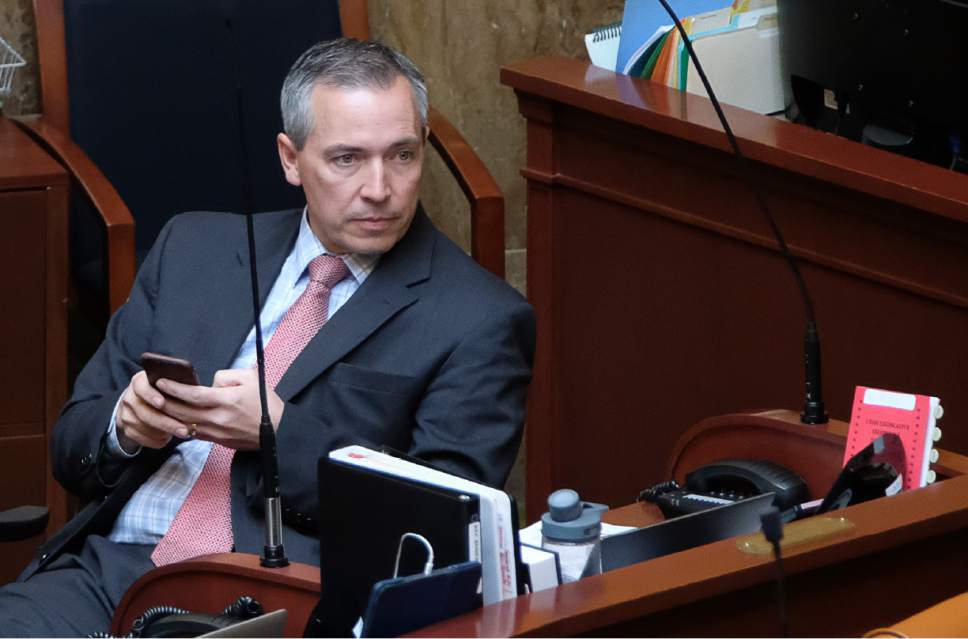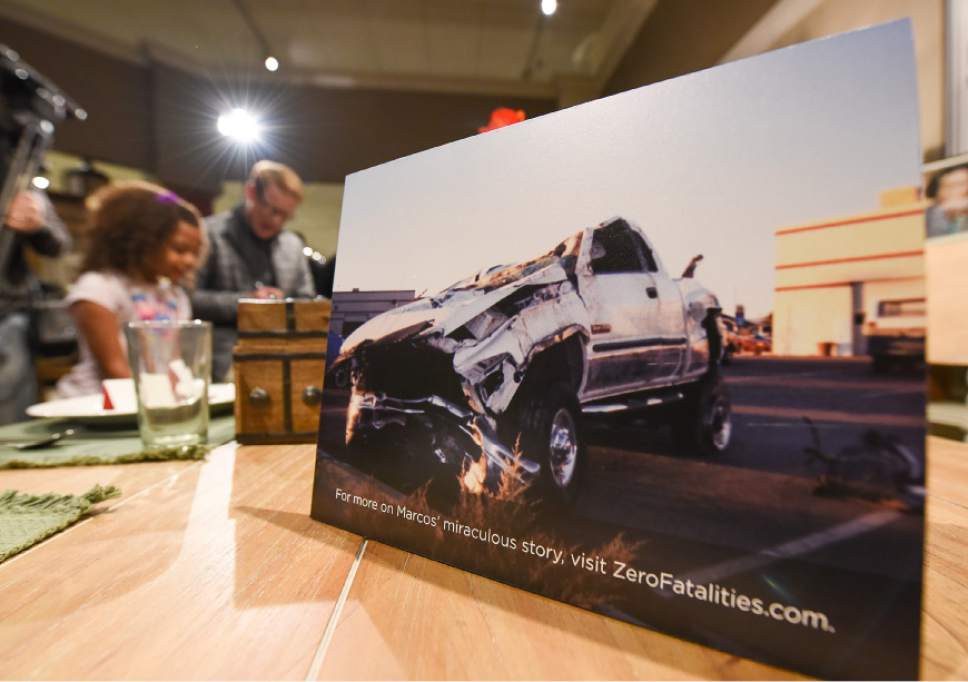This is an archived article that was published on sltrib.com in 2017, and information in the article may be outdated. It is provided only for personal research purposes and may not be reprinted.
Evading pursuit and ignoring warnings by a Highway Patrol officer, the Utah House on Thursday endorsed eliminating safety inspections for noncommercial vehicles.
Members voted 45-29 to pass HB265 and sent it to the Senate.
That came despite spirited opposition from Rep. Lee Perry, R-Perry, who is a Highway Patrol lieutenant.
He said he supported a bill in 2012 that reduced the frequency of inspections and immediately regretted it.
The first accident he investigated afterward was a fatality in which a man bought a car in Idaho — which does not require inspections — and its brakes failed in a canyon.
"It wasn't the first or last time" Perry has seen problems that killed people that he said could have been prevented by inspections — including one car being driven with bald tires in heavy snow, which had failed an inspection but not yet had its tires replaced.
"Do safety inspections save lives?" he asked. "We have roughly 1.6 million vehicles that go through the [inspection] process; 60,000 are rejected for safety concerns."
But the bill's sponsor, Rep. Dan McCay, R-Riverton, said his truck failed an inspection because a license-plate light bulb had burned out. He said studies show fewer than 1 percent of road fatalities come from failed equipment — and 34 of 50 states have dropped vehicle-inspection programs.
"People want safe cars," McCay said and most do not require a government mandate for repairs.
"Mandatory vehicle inspections are, by and large, a feel-good effort that yields little to no verifiable results," McCay said. "Our vehicles are safer today than ever."
The lawmaker said the real problem with traffic safety is bad driving. He said eliminating safety inspections would allow six Highway Patrol troopers overseeing inspection programs to leave their desks and help enforce laws against speeding, texting, not wearing seat belts or driving while impaired.
Perry argued that catching the 60,000 serious vehicle problems identified annually by inspections would require "40 troopers stopping 1,500 cars a day," so the change would be a bad trade-off.
"It is really a tax," Rep. Derrin Owens, R-Fountain Green, said about inspections. "You have an opportunity today to repeal a tax."
But Rep. Jim Dunnigan, R-Taylorsville, warned passing the bill would make Utah roads more dangerous.
"There is a certain percent of our population that will drive their car until their brakes fall off and their muffler falls off and their tires fall off. And those are the ones I meet up with on the highway, it seems like," he said, adding that inspections force them to keep their cars safe.
The U.S. Government Accountability Office, the research arm of Congress, issued a 2014 report saying it can find no definitive evidence that mandatory inspection programs reduce accidents, noting crash rates are about the same in states that have them as in those that do not.
But it noted states with those programs do find and correct all sorts of safety problems. For example, the GAO report said Utah in 2015 reported 47,172 failed inspections just for "glass" problems, which it said included "glass that is broken, missing, shattered or jagged," or had "issues with tinting, wipers/washer and mirrors."





